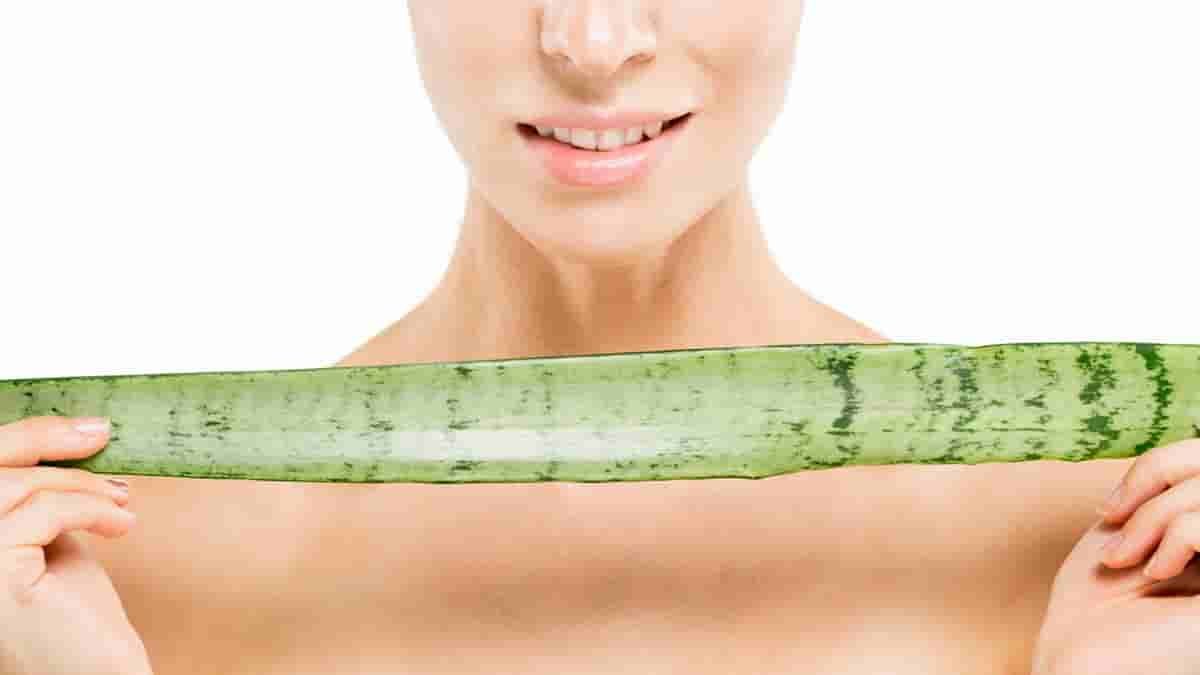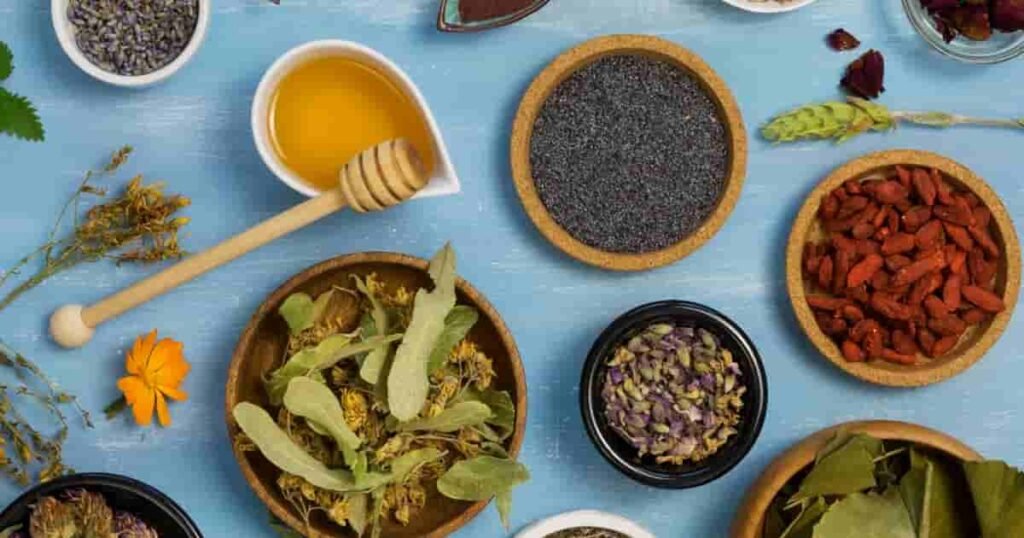The Miracle Plant: Unlocking 43 Benefits of Aloe Vera, Understanding its Nutrition, and Mastering its Use
Aloe Vera. The name conjures images of soothing sunburn relief and verdant, spiky leaves. But this succulent is far more than just a sunburn savior. For centuries, Aloe Vera has been celebrated for its potent healing properties and has been integrated into traditional medicine systems worldwide. From skincare to digestive health, this plant offers a remarkable array of benefits.
In this comprehensive guide, we’ll delve deep into the world of Aloe Vera, exploring its impressive nutritional profile, dissecting 43 incredible benefits, providing practical instructions on how to use it effectively, offering guidelines on appropriate dosages, and outlining potential risks to be aware of. Prepare to unlock the power of Aloe Vera and discover how it can contribute to your overall well-being.
Understanding Aloe Vera: A Brief Overview
Aloe Vera is a succulent plant belonging to the Asphodelaceae family. Characterized by its thick, fleshy leaves containing a clear gel, Aloe Vera thrives in warm climates and is widely cultivated for its medicinal and cosmetic uses. The two main components extracted from the plant are:
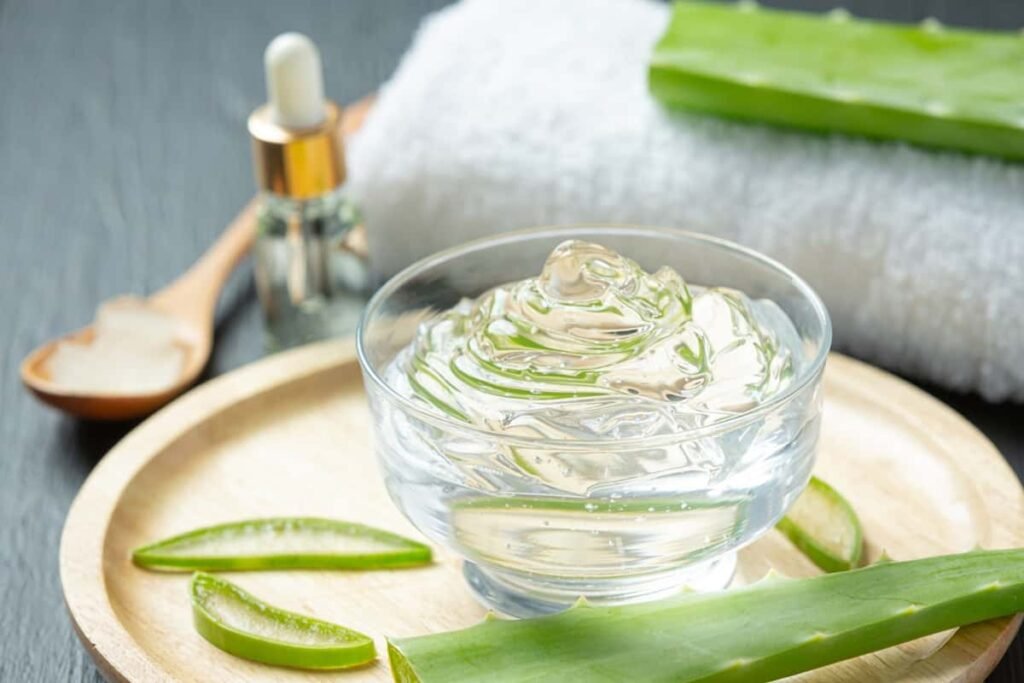
- Aloe Vera Gel: This clear, jelly-like substance is found in the inner portion of the leaf and is renowned for its soothing, moisturizing, and healing properties.
- Aloe Vera Latex (Aloe): Located just beneath the outer skin of the leaf, this contains anthraquinones, which are powerful laxatives. It’s important to note that the latex is often associated with side effects and should be used with caution, if at all.
Aloe Vera Nutrition: What Makes it So Beneficial?
The remarkable health benefits of Aloe Vera are largely attributed to its rich nutritional composition. It contains a plethora of vitamins, minerals, enzymes, and amino acids, working synergistically to promote overall health. Here’s a glimpse into its nutritional powerhouse:
- Vitamins: Aloe Vera contains vitamins A, C, E, and B vitamins (including B1, B2, B3, B6, and B12). These vitamins act as antioxidants, protecting cells from damage caused by free radicals. They also play vital roles in immune function, skin health, and nerve function.
- Minerals: This succulent is packed with minerals like calcium, chromium, copper, selenium, magnesium, manganese, potassium, sodium, and zinc. These minerals are essential for various bodily functions, including bone health, enzyme activity, and electrolyte balance.
- Enzymes: Aloe Vera contains several enzymes, including amylase, lipase, catalase, and cellulase. These enzymes aid in digestion, break down fats and sugars, and reduce inflammation.
- Amino Acids: Aloe Vera contains 20 of the 22 amino acids required by the human body, including 7 of the 8 essential amino acids that the body cannot produce on its own. Amino acids are the building blocks of protein and are crucial for cell growth and repair.
- Polysaccharides: These long-chain sugars, like acemannan, are responsible for Aloe Vera’s moisturizing, anti-inflammatory, and immune-boosting properties.
- Anthraquinones: Found in the latex, these compounds have potent laxative effects. However, their use should be approached with caution due to potential side effects.
- Salicylic Acid: Possessing anti-inflammatory and antibacterial properties, salicylic acid contributes to Aloe Vera’s ability to soothe skin irritations and fight acne.
- Plant Sterols: These compounds, like campesterol, β-sitosterol, and lupeol, exhibit anti-inflammatory and antiseptic properties.
43 Amazing Benefits of Aloe Vera: A Comprehensive List
Now, let’s dive into the heart of the matter: the diverse and impressive benefits of Aloe Vera.
For Skin Health:
- Soothes Sunburn: The most well-known benefit, Aloe Vera’s cooling and anti-inflammatory properties provide instant relief from sunburn pain and promote faster healing.
- Moisturizes Skin: Aloe Vera is a natural humectant, drawing moisture from the air to keep the skin hydrated and supple.
- Reduces Acne: Its antibacterial and anti-inflammatory properties help fight acne-causing bacteria and reduce redness and swelling.
- Heals Wounds: Aloe Vera accelerates wound healing by stimulating collagen production and reducing inflammation.
- Treats Eczema and Psoriasis: Its soothing and moisturizing properties can alleviate the symptoms of eczema and psoriasis, reducing itching and inflammation.
- Reduces Skin Irritation: From insect bites to rashes, Aloe Vera can soothe irritated skin and promote healing.
- Fades Scars and Stretch Marks: Aloe Vera can help reduce the appearance of scars and stretch marks by promoting collagen production and skin regeneration.
- Reduces Dark Spots: Aloe Vera contains aloin, a natural depigmenting agent that can help lighten dark spots and even out skin tone.
- Anti-Aging Properties: Aloe Vera’s antioxidants help protect the skin from free radical damage, reducing wrinkles and fine lines.
- Exfoliates Skin: Contains enzymes that act as a gentle exfoliant, removing dead skin cells and revealing brighter, smoother skin.
- Soothes Razor Burn: Applying Aloe Vera gel after shaving can help reduce razor burn and prevent ingrown hairs.
- Reduces Inflammation: Powerful anti-inflammatory properties make it effective in treating various skin conditions.
- Treats Minor Burns: Effective in treating first and second-degree burns, promoting faster healing and reducing scarring.
- Heals Cold Sores: The antiviral and anti-inflammatory properties can help speed up the healing process of cold sores.
- Treats Fungal Infections: Possesses antifungal properties that can help treat various fungal infections of the skin.
For Hair Health:
- Promotes Hair Growth: Aloe Vera contains enzymes that can help stimulate hair growth and improve scalp health.
- Conditions Hair: Acts as a natural conditioner, leaving hair soft, shiny, and manageable.
- Strengthens Hair: Helps strengthen hair follicles and prevent breakage.
- Reduces Dandruff: Its antifungal and anti-inflammatory properties can help combat dandruff and soothe an itchy scalp.
- Soothes Scalp Irritation: Can help soothe scalp irritation caused by dryness, sunburn, or other factors.
- Cleanses the Scalp: Effectively removes excess oil and buildup from the scalp.
For Digestive Health:
- Soothes Heartburn: Aloe Vera juice can help neutralize stomach acid and reduce heartburn symptoms.
- Reduces Constipation: Aloe Vera latex (aloe) acts as a natural laxative, promoting bowel movements. Use with caution and only under the guidance of a healthcare professional.
- Treats Irritable Bowel Syndrome (IBS): Some studies suggest that Aloe Vera can help alleviate symptoms of IBS, such as bloating, gas, and abdominal pain.
- Reduces Inflammation in the Gut: Its anti-inflammatory properties can help reduce inflammation in the digestive tract.
- Aids Digestion: Contains enzymes that help break down food and improve digestion.
- Promotes a Healthy Gut Microbiome: Some studies suggest Aloe Vera can help support a healthy balance of gut bacteria.
For Overall Health and Wellness:
- Boosts Immunity: Rich in antioxidants and polysaccharides, Aloe Vera can help strengthen the immune system.
- Reduces Inflammation: Its anti-inflammatory properties can help reduce inflammation throughout the body, potentially mitigating the risk of chronic diseases.
- Lowers Cholesterol: Some studies suggest that Aloe Vera can help lower cholesterol levels.
- Regulates Blood Sugar: May help improve insulin sensitivity and regulate blood sugar levels in people with diabetes.
- Detoxifies the Body: Acts as a natural detoxifier, helping to flush out toxins from the body.
- Reduces Pain: Its anti-inflammatory and analgesic properties can help reduce pain associated with arthritis and other conditions.
- Improves Oral Health: Aloe Vera juice can help reduce plaque and gingivitis when used as a mouthwash.
- Supports Joint Health: May help reduce joint pain and inflammation associated with arthritis.
- Antioxidant Properties: Rich in antioxidants that protect cells from damage caused by free radicals.
- Hydrates the Body: Aloe Vera juice is a hydrating beverage that can help replenish electrolytes.
- Reduces Blood Pressure: Some studies suggest that Aloe Vera can help lower blood pressure.
Other Benefits:
- Soothes Eye Irritation: (Use ONLY sterile Aloe Vera specifically designed for eye use, consult with an eye doctor first). Can help relieve dry and irritated eyes.
- Treat Canker Sores: Applying Aloe Vera gel to canker sores can help reduce pain and speed up healing.
- Reduces Swelling: Can help reduce swelling associated with injuries or inflammation.
- Supports Cardiovascular Health: By lowering cholesterol and blood pressure, Aloe Vera may contribute to a healthier cardiovascular system.
- Improves Nutrient Absorption: Aloe Vera may improve the absorption of certain nutrients from food.
How to Use Aloe Vera: Practical Applications
Aloe Vera’s versatility extends to its usage. Here’s a guide on how to incorporate it into your routine:
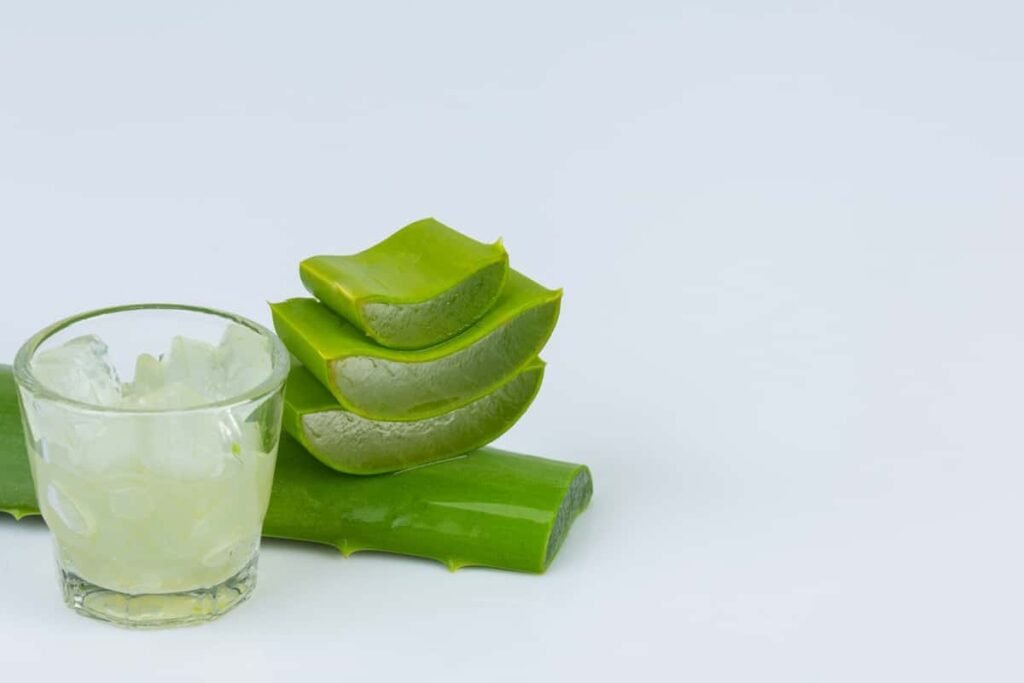
- Topical Application: For skin conditions, apply a thin layer of pure Aloe Vera gel directly to the affected area. Repeat as needed. You can harvest the gel directly from the plant by carefully slicing open a leaf and scraping out the gel. Alternatively, purchase commercially available Aloe Vera gel, ensuring it is as pure as possible (look for products with a high percentage of Aloe Vera and minimal additives).
- Aloe Vera Juice: You can consume Aloe Vera juice to support digestive health and overall wellness. Choose a high-quality juice that is specifically formulated for internal consumption. Be mindful of the source and ensure it is free of aloin (the latex component) as it can cause diarrhea.
- Hair Treatments: Apply Aloe Vera gel to your hair and scalp as a conditioner, mask, or leave-in treatment. You can also add it to your shampoo or conditioner.
- Homemade Skincare Products: Incorporate Aloe Vera gel into your homemade lotions, creams, and facial masks for added hydration and soothing benefits.
- Mouthwash: Use Aloe Vera juice as a mouthwash to promote oral hygiene.
How Much Aloe Vera Should You Use? Dosage Guidelines
The appropriate dosage of Aloe Vera depends on the form being used and the individual’s needs.
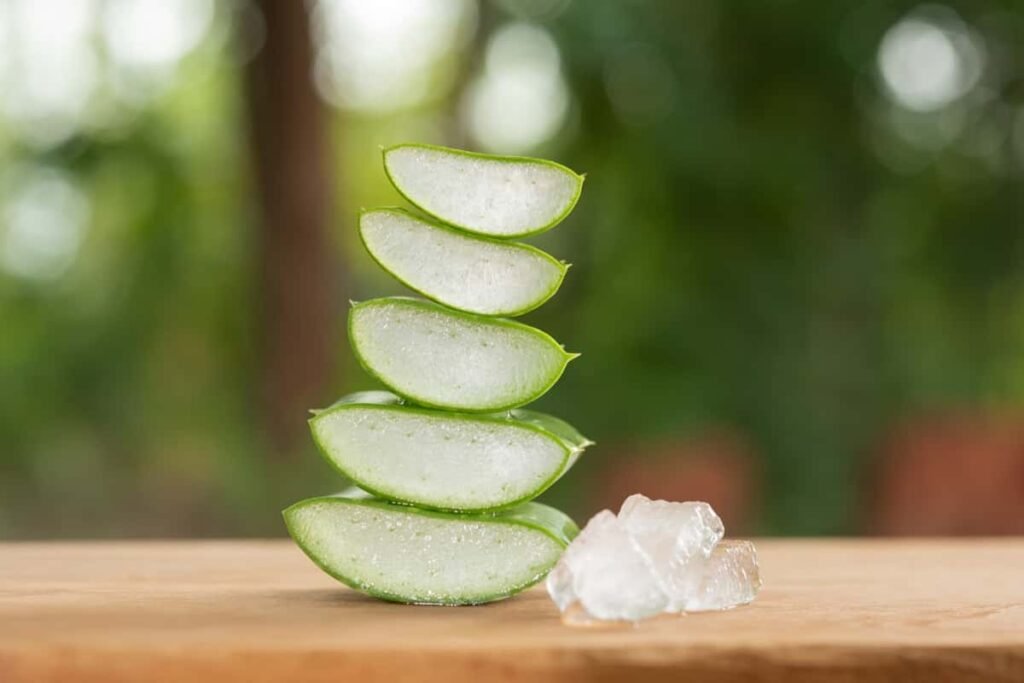
- Topical Use: For topical applications, a thin layer of Aloe Vera gel applied to the affected area is generally sufficient.
- Aloe Vera Juice: Start with a small dose (1-2 ounces) and gradually increase as needed. Follow the dosage instructions on the product label. It is highly recommended to consult with your healthcare provider before starting Aloe Vera juice, especially if you have any underlying health conditions or are taking medications.
- Aloe Vera Latex (Aloe): This is generally not recommended for long-term use due to potential side effects. Consult with a healthcare professional before using Aloe Vera latex.
Risks and Side Effects of Aloe Vera: What You Need to Know
While Aloe Vera is generally safe, it’s essential to be aware of potential risks and side effects:
- Allergic Reactions: Some individuals may be allergic to Aloe Vera. Perform a patch test on a small area of skin before applying it to a larger area.
- Digestive Issues: Aloe Vera latex (aloe) can cause diarrhea, abdominal cramps, and electrolyte imbalances. Avoid products containing significant amounts of latex.
- Drug Interactions: Aloe Vera may interact with certain medications, such as diuretics, blood thinners, and diabetes medications. Consult with your doctor before using Aloe Vera if you are taking any medications.
- Pregnancy and Breastfeeding: Aloe Vera is not recommended for pregnant or breastfeeding women due to its potential laxative effects.
- Skin Sensitivity: Some individuals may experience skin irritation or sensitivity to Aloe Vera. Discontinue use if irritation occurs.
- Potassium Depletion: Long-term use of Aloe Vera latex can lead to potassium depletion, which can affect heart function.
Conclusion: Embracing the Power of Aloe Vera Responsibly
Aloe Vera is a truly remarkable plant with a vast array of potential benefits for skin, hair, digestive health, and overall wellness. By understanding its nutritional composition, exploring its diverse applications, and being mindful of potential risks, you can harness the power of Aloe Vera to enhance your health and well-being.
Remember to choose high-quality products, start with small doses, and consult with your healthcare provider before using Aloe Vera, especially if you have any underlying health conditions or are taking medications. With responsible use and mindful application, Aloe Vera can be a valuable addition to your health and beauty regimen. Unlock the miracle of this ancient plant and experience the transformative power of nature!
Also Read,
